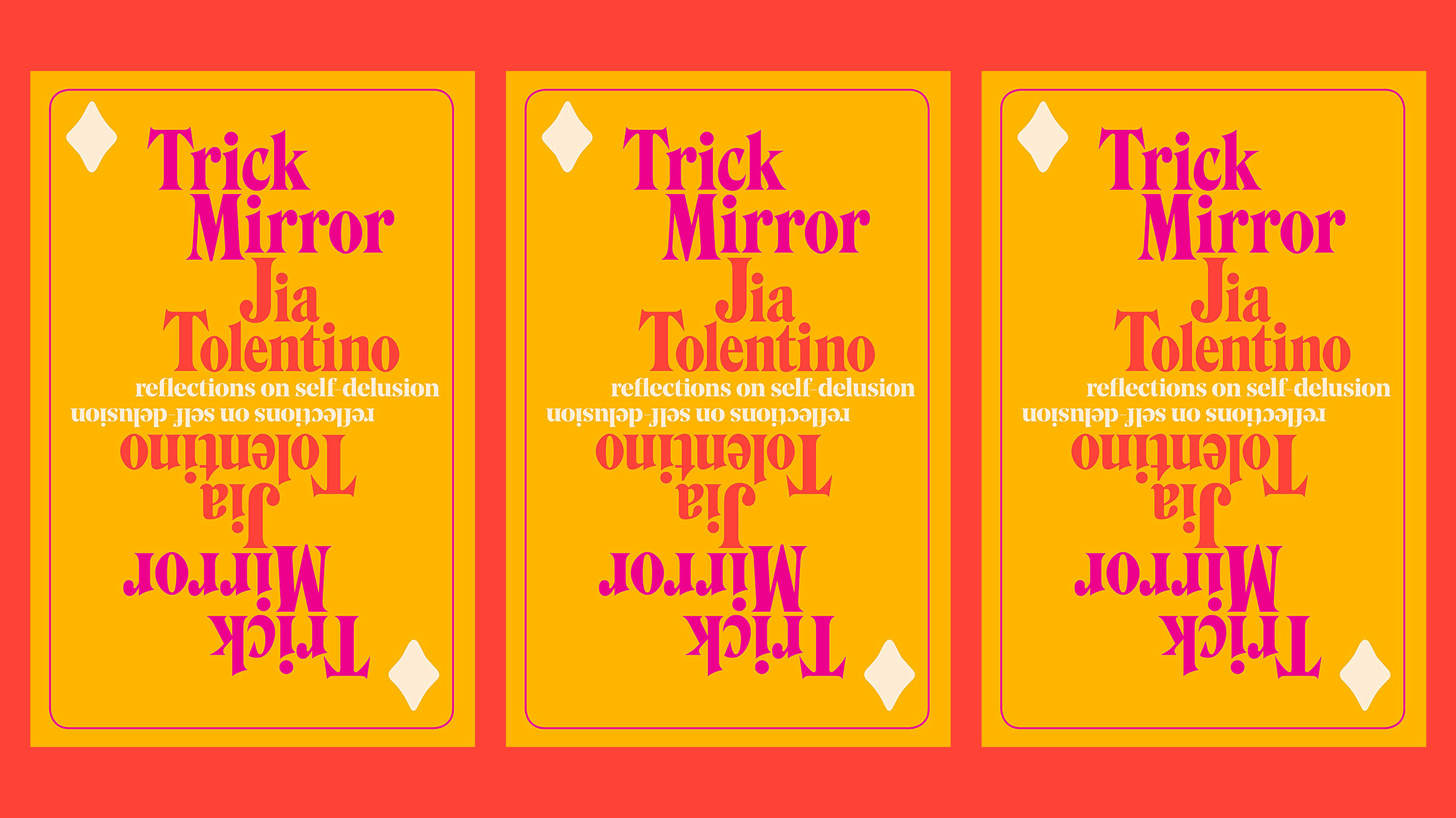The writer's debut book diagnoses a spectrum of incurable issues millennials face today
Being alive in 2019 is like being trapped in a twisted funhouse of sorts. There’s the unliveable hell of the internet, an American president that has endorsed everything from sexual harassment to white supremacy, and a culture that requires us to maintain the illusion of an optimal lifestyle.
This is what Jia Tolentino’s Trick Mirror: Reflections on Self-Delusion dives into. It’s an in-depth exploration of identity and selfhood in a contemporary culture that glorifies both of those things. In her debut book, the New Yorker writer lauded for deftly capturing the millennial moment tackles a wide range of topics that have dominated the cultural zeitgeist over the past decade, including the capitalist co-optation of personal identity, feminism, youth culture, reality TV, and the advent of the digital age. What makes this collection so sharp is Tolentino’s acute ability to dissect the economic and cultural factors that have shaped a millennial generation.
In the collection’s first essay, “The I in Internet,” Tolentino examines what is inextricable to the millennial experience; the way the internet informs and detracts from our sense of self. Initially, social media was marketed as a way for us to connect with each other, but in our current era, personal identities are the product that drives social media. Harvard Business School professor emerita Shoshana Zuboff refers to this as surveillance capitalism, which “unilaterally claims human experience as free raw material for translation into behavioral data.”
Capitalism is no longer centered around a tangible product. Our personal data is tracked as we move around the web and sold to major corporations. Our news feeds are tailored to our unique interests which in turn drive us towards websites that reflect the personal brands and values we have cultivated on Instagram or Facebook. The public’s ability to negotiate these terms is limited. In the traditional marketplace you can choose whether or not to purchase a product or service based on whether it caters to your own personal needs. There’s a sense of choice, you opt in when you buy something, but the business model that drives social media removes this sense of agency by positioning products as a vital part of our identity.
Tolentino likens this to a kind of performance, one that offers a deluded reflection of ourselves. She writes, “through social media, many people have come to view all new information as a sort of direct commentary on who they are.” This capitalist co-optation of personal identity extends to other areas as well. In the essay “Always Be Optimizing” Tolentino analyzes how ideal versions of ourselves, shaped by social media, drive us to constantly optimize our bodies and our identities. The ideal woman is “of indeterminate age but resolutely youthful…showcasing herself at leisure is either the bulk of her work or an essential part of it…she looks like an Instagram.”
The wellness industry, and most industries primarily targeted towards women, benefit from this in particular. Think about athleisure. As Tolentino explains, it is efficient, and makes you look good, all while signaling that you’re a person who prioritizes taking care of your body. Today’s era conflates self-care with self-optimization. The further women advance in their careers and attain equal rights, the more they’re expected to maintain their youthful appearance.
However, it is Tolentino’s acute dissection of scamming as the “definitive millennial ethos” that offers a pivotal moment. In the essay “The Story of a Generation in Seven Scams,” she recalls the most infamous cons of recent years, such as Fyre Festival and Anna Delvey, a New York grifter who made headlines for posing as a wealthy heiress and swindling the city’s elite.
Tolentino reframes a scam as selling someone something that you know isn’t going to work or won’t equally compensate all parties involved. She draws on the 2008 financial crisis, when banks offered bad subprime mortgages to people who couldn’t afford it, or the 2016 election, where a bankrupt businessman who bragged about preying on women became president over an experienced politician.
But a closer look reveals that scamming isn’t just a millennial problem, it’s the American way of life. This country was founded on a system of inequality, exploiting the labor of some in order to ensure the comfort of others. The delusion is thinking that individual action can replace a much-needed structural overhaul. Tolentino alludes to this when she admits that, after seven years of guilty confliction, she’s finally stopped using Amazon due to its inhumane treatment of laborers. However long-term change would lie in not just boycotting Amazon, but tackling a system that enables the exploitation of labor workers.
This is where the book’s title Trick Mirror is apt. It’s our self-delusions that trick us into thinking that societal structures built on inequality will inherently improve us rather than harm us. What Tolentino offers is a profound narrative about American identity. This debut rightly cements her as an ingenious cultural historian, one who can hold a microscope to the delusions that run wild in our society.







